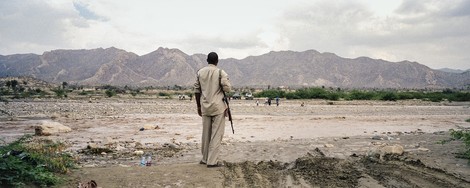Your podcast discovery platform
Curious minds select the most fascinating podcasts from around the world. Discover hand-piqd audio recommendations on your favorite topics.

piqer for: Global finds
Ciku Kimeria is a Kenyan author "Of goats and poisoned oranges" - (https://www.amazon.com/goats-poisoned-oranges-Ciku-Kimeria-ebook/dp/B00HBBWPI6), development consultant, adventurer and travel blogger (www.thekenyanexplorer.com). She writes both fiction and non-fiction focusing on African stories that need telling. She has worked on diverse pieces for various international and local publications including Quartz, Ozy, The East African etc. She has travelled to 45 countries – 16 of them in Africa. 153 countries to go and 63 territories!
"Of goats and poisoned oranges" has been extremely well received in Kenya and beyond. It tells the story of a Kenyan middle aged power couple and their complicated marriage. The novel explores issues of greed, revenge, betrayal and murder. It runs from the 1960s to 2013. It has been described as “Wicked, funny, poignant, wacky, human, a big ball of fun and danger”, “A unique and captivating book”, “Fun and intriguing”, “Impossible to put down once you start reading.”
She recently moved to Dakar, Senegal from Kenya to work on her second novel. She also works at as the Africa Communication Manager at a leading global strategy consulting firm.
She holds a B.S. in Management Science from MIT with minors in Urban Planning and International development studies.
Somalia: Could Climate Change Adaptation Help End A Civil War?
"The livelihood of the Somali people is entirely attached to the water and land." This particular quote captures so much about why questions of environmental degradation cannot be ignored as we discuss the ongoing Somali crisis. In June 2008, a renowned English ecologist - Murray Watson - went missing in Somalia. For decades, he had led a team of local, regional environmentalists studying just how the country's climate had been changing. His research spanned from the 70s until the government's collapse in 1991. Even during and after the civil war, he continued carrying out his research as best he could. When he was kidnapped in 2008, it was believed that all his scientific research disappeared with him. The discovery of his files more than 4,000 miles away in Britain has reignited interest in his work, his findings and its implications in present day Somalia.
Years back, when I learnt that one of Somalia's largest exports was illegal charcoal, I began to realize just how conflict and environmental degradation go hand in hand. In Somalia, whoever controls the access to land (especially grazing land given that Somalis are a nomadic society) and access to much needed water points, has all the power. During the long-standing war in Somalia, various militia have taken advantage of the situation to destroy every part of the country's fiber - including its natural assets.
Watson and his team of researchers, "Divvied up tasks by specialization — flora, water, soil, wildlife — and produced intricate, hand-drawn maps of vegetation and topography, conducted a census of livestock, gathered thousands of samples of flora and soil, and took nearly 10,000 slides and photographs. Though they didn’t know it at the time, they were creating a detailed record of a place on the cusp of calamity."
While focusing on the cyclical tie between conflict and environmental degradation, the article also allows us to see the complete destruction of everything in Somalia - all sorts of life.
